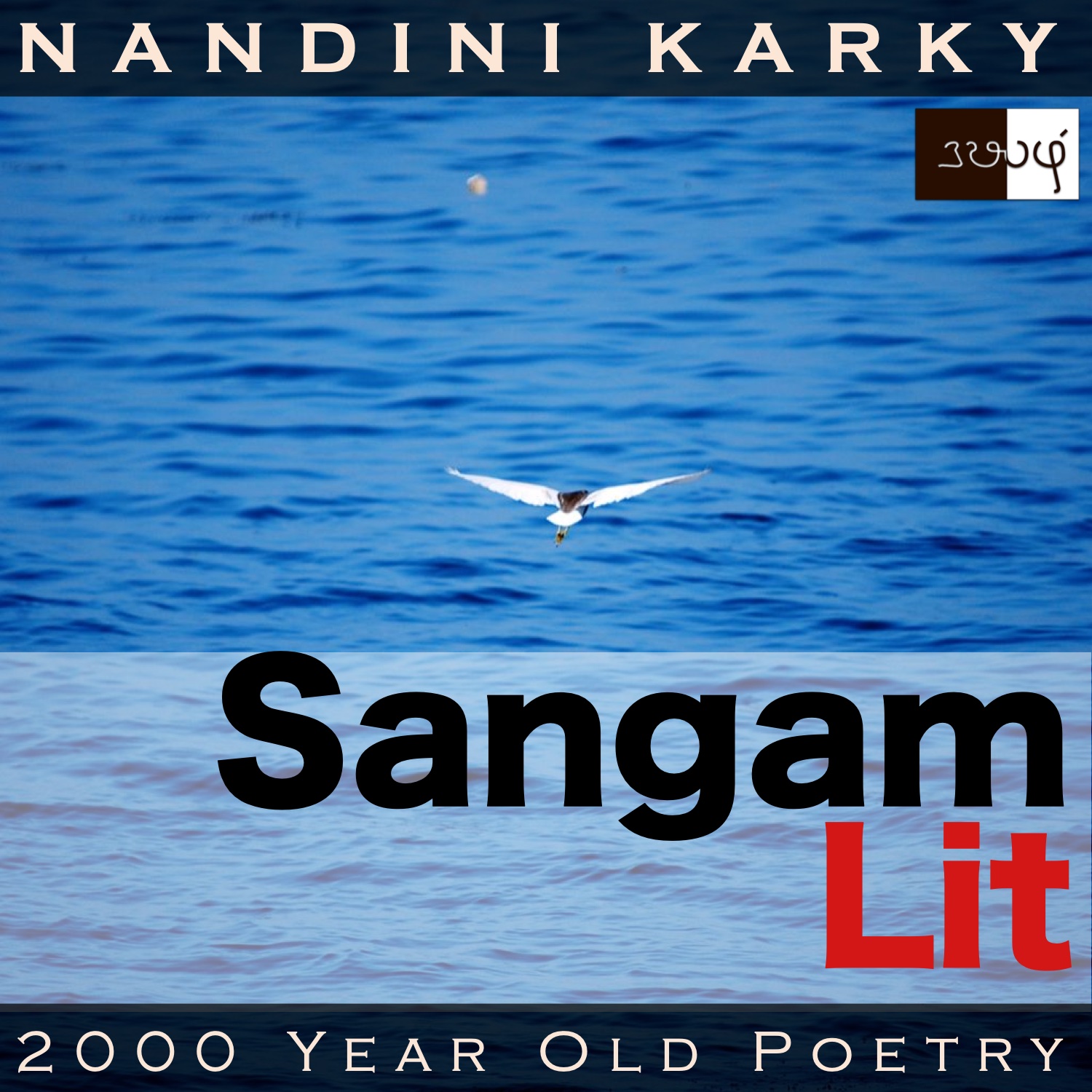Podcast: Play in new window | Download
Subscribe: Apple Podcasts | Spotify | Amazon Music | Android | iHeartRadio | TuneIn | RSS | More

In this episode, we listen to the distress of a lady as she contemplates an evening and night ahead of her, as depicted in Sangam Literary work, Kurunthogai 387, penned by Kangul Vellathaar. The verse is situated in the forests of ‘Mullai’ and speaks in the voice of the lady to the confidante, in response to the confidante’s words that the lady must bear better with the man’s parting.
எல்லை கழிய, முல்லை மலர,
கதிர் சினம் தணிந்த கையறு மாலை,
இர வரம்பாக நீந்தினம் ஆயின்,
எவன்கொல்? வாழி-தோழி!
கங்குல் வெள்ளம் கடலினும் பெரிதே!
‘How will I swim this flood of time before me?’ is the melancholic question herein! The opening words ‘எல்லை கழிய முல்லை மலர’ talk about the approach of the evening for it means ‘as the day ends and wild jasmines flower’. A dejected tone can be sensed in ‘எவன்கொல்’ meaning ‘what is the use’. Ending with the words ‘கங்குல் வெள்ளம் கடலினும் பெரிதே’ meaning ‘the floods of the night spread wider than the oceans’, the verse highlights the phrase that has given the song’s poet his name and welcomes us to listen with empathy.
Why is the lady so dejected? The context reveals that the man and lady were leading a married life when the man parted away to gather wealth. In his absence, the lady languishes, and seeing the ruined state of the lady’s health, the confidante advises her to bear the separation and not wallow in suffering. To the confidante, the lady replies, “As the day passes and wild jasmines bloom, and when the sun’s fury wanes in this evening of helplessness, if I consider the night to be the shore and swim towards it, what is the use of that, my friend? May you live long. For the flood of a night is greater than a sea!” With these words, the lady expresses her inability to face the man’s separation with the calmness the confidante recommends.
A verse firmly rooted in the angst of a person missing another! The lady starts by talking about the scenes of the world that announce the arrival of dusk, in the way the day seems to bid farewell, wild jasmines say hello, and the raging sun departs from the theatre of the land. At this time, if the lady considers that she has to swim and cross only the evening, at the end, she finds an even bigger ocean, in the form of a long and lonely night. She laments to her friend, asking what is the point of crossing this evening only to find the night looming menacingly there?
That feeling when the end is not in sight is the exact emotion in this lady. First evening torments and then hands her over to the night in this relay race of torture, the lady implies. All this is only because the man has parted away on a journey and is not near her. Why this portrayal of a woman as helpless without a man? Why is this same thought reiterated over and over again? A trope for reinstating patriarchy or was it the reality then? Whatever the answer maybe, this is a different time when the woman need not languish as if it’s the end of the world if her man simply leaves on a work trip. She has her own life and interests to pursue, and she is someone who can truly put in action what the poet Kahlil Gibran means, when he says, “And stand together, yet not too near together; For the pillars of the temple stand apart, and the oak tree and the cypress grow not in each other’s shadow.”




Share your thoughts...